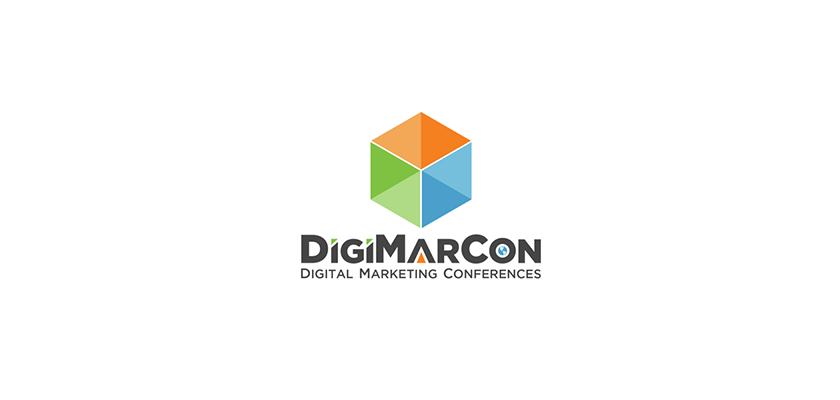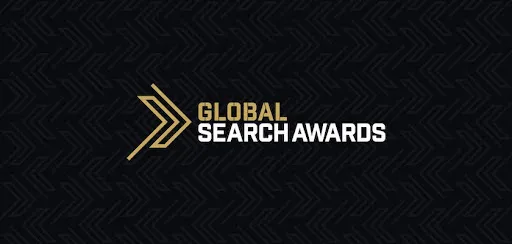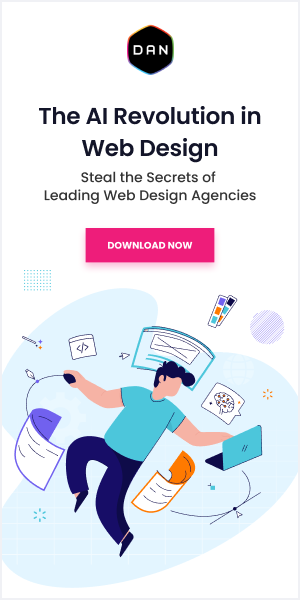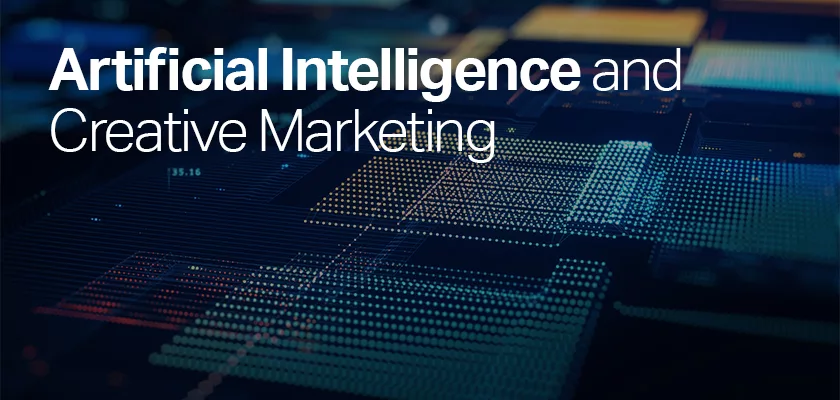
Artificial Intelligence and Creative Marketing
News of ChatGPT and the introduction of AI software to multiple apps, including Snapchat, Buffer, Notion, Canva, TikTok, CapCut, and more, has been rocking the digital world. But what does it mean for those of us working in digital marketing, how can it be beneficial, and should we be concerned?
What’s up with ChatGPT?
The truth is ChatGPT isn’t going away any time soon; it’s only looking to expand. OpenAI launched plugins for ChatGPT, extending the bot’s functionality by granting it access to third-party knowledge sources and databases, including the web. The new updates being rolled out will feature a “multimodal” model, meaning that it can accept different inputs in the form of text and images.
According to Euronews, it will be capable of generating captions and providing responses by analysing the components of images. OpenAI’s new system will also be able to pass various standardised tests. Previous versions of the technology couldn’t pass things like legal exams for the Bar and did not perform as well on more advanced tests, especially in maths. According to OpenAI, GPT-4 has the potential to score in the top 10 percent of students in the US taking the Uniform Bar Examination.
However, the usefulness of AI extends beyond passing tests and writing essays, of course. According to Digital Agency Network, artificial intelligence imitates the human mind to make decisions and function. As a result, it helps marketing teams create effective marketing plans and workflows. AI in digital marketing needs data to carry out its responsibilities for the companies within the framework of models built by algorithms. The raw material of artificial intelligence algorithms and models is data hence why data collection is a hot topic in today’s business world!
Copywriting
Copywriter Henry Williams recently expressed his horror in an article for the Guardian after realising ChatGPT was more than capable of doing his job. While the AI-produced article lacked some of the human flare and personality that Williams naturally infuses his work with, the impressiveness of this tool was enough to shock him. He writes – “It (ChatGPT) tends towards the verbose and repetitive, and minor changes to question phrasing can be the difference between an amazing response and no response at all. The more we use it, however, the better it will become.”
This raises the question of whether AI will ever be able to harness creativity. Many copywriters will quickly highlight the need for a human touch in all writing – and we’d agree (though we’re not biased at all). As all good writers know, AI simply can’t resonate with customers the way humans can! We firmly believe striking a middle ground is always better. Let AI take over your boring admin, or even use it as a way to cure your writer’s block!
Design
One of the main things to come out of AI development is the simplification of design tools, allowing designers to bring to life concepts with greater speed and efficiency. Recently AI images have been going viral for their detail and artistry. From Donald Trump being arrested to the viral TikTok AI painter, AI-generated images are impressive, to say the least.
Fake photos of Pope Francis in a puffer jacket went viral, highlighting the power and peril of AI. https://t.co/RXFgFCDXKC
— CBS News (@CBSNews) March 28, 2023
The AI image of the Pope wearing a puffer jacket kind of broke the internet. The fact so many believed the image to be real highlights the power of AI in producing human-like content. The image proved how synthetic media could shape our perceptions of reality, and for some, this was very alarming.
However, when it comes to digital marketing, AI remains nothing more than an expert tool. Creative director Jessica Tan says in an interview for Design Week, ‘…While AI-generated original art is perhaps not too far away, AI-generated creativity is much harder to achieve. Could we possibly artificially codify and implement the messy, organic, chaotic process of creativity?’
Influencers
Virtual influencers have existed for a few years and have been known to work with huge labels and human models, including Lil Miquela, a self-described “19-year-old robot living in LA”, who has worked with supermodel Bella Hadid and Calvin Klein. Virtual influencer Noonouri has also worked with Kim Kardashian’s skincare brand Skkn and luxury fashion house Dior. Using virtual models and influencers is highly valued by brands seeking to demonstrate their modernity and prove they align with new technologies.
However, virtual influencers have mainly been controlled by a human, maintaining the line between human and virtual. With the growing development of ChatGPT and access to knowledge, these lines may become increasingly blurred. According to The Drum: “For now, it’s easy for most online audiences to discern between real and synthetic people online. Many marketers believe that will soon change, however, as artificial intelligence empowers virtual influencers to become more lifelike and autonomous.”
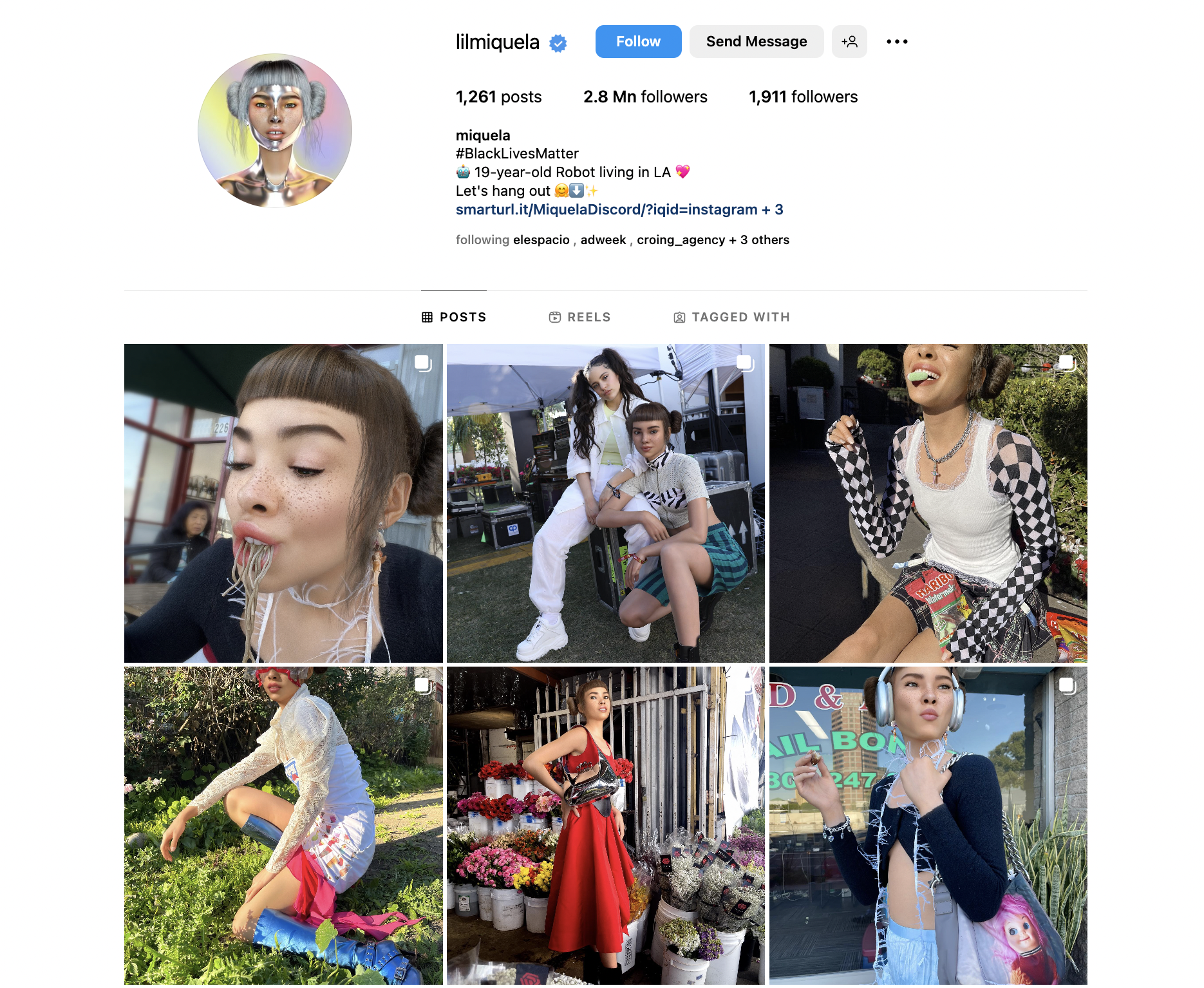
There is a lot of controversy surrounding virtual influencers, particularly those who profit off of marginalised groups. The use of AI in digital marketing could potentially remove the need to have someone ‘operating’ a virtual influencer, but can AI be trusted to understand social ethicality? Many people are already expressing concerns about how CGI diversity will be capitalised on by brands to avoid commitment to real diversity. One online commenter on Lil Miquela’s post asks, “Why rep a real woman of colour when you can have a fake one that you can totally control everything about?”
Main Takeaways
It’s safe to say that AI is already transforming how we do things, and the consensus is that AI will only continue to become more advanced and efficient. It will become somewhat impossible to avoid it being a part of our daily working lives, but this isn’t to say that AI can do our day-to-day jobs better than us. The larger prediction for the future of AI is that it will become a standard tool for marketers in almost every industry area.














